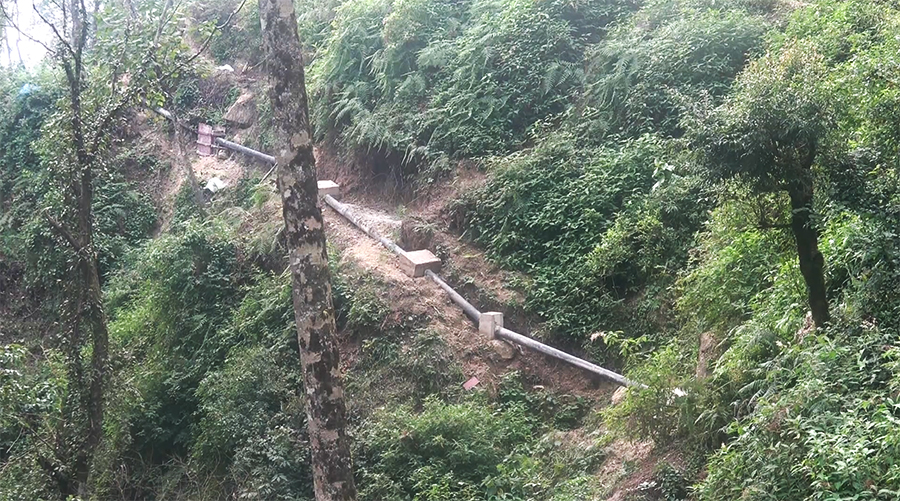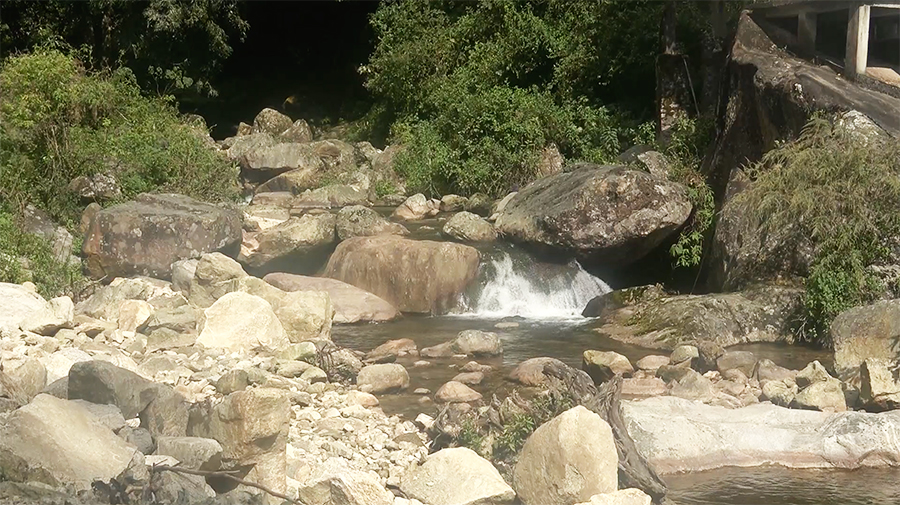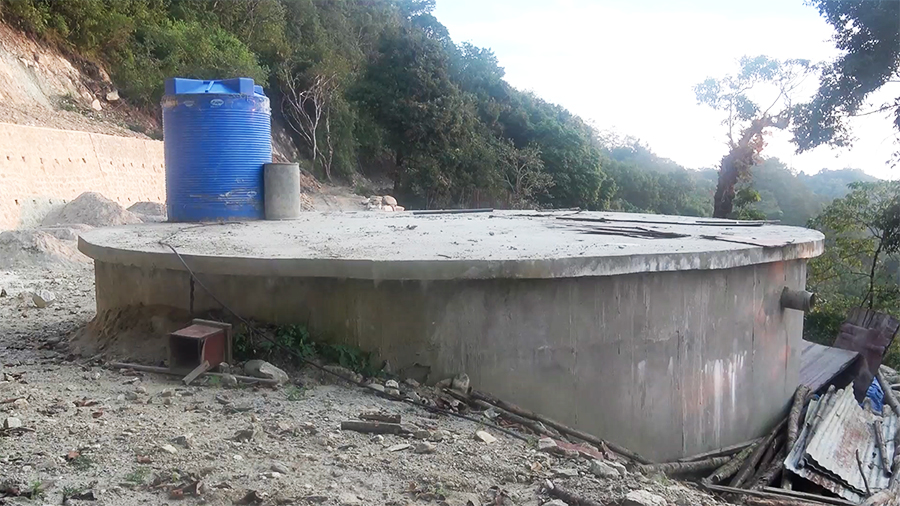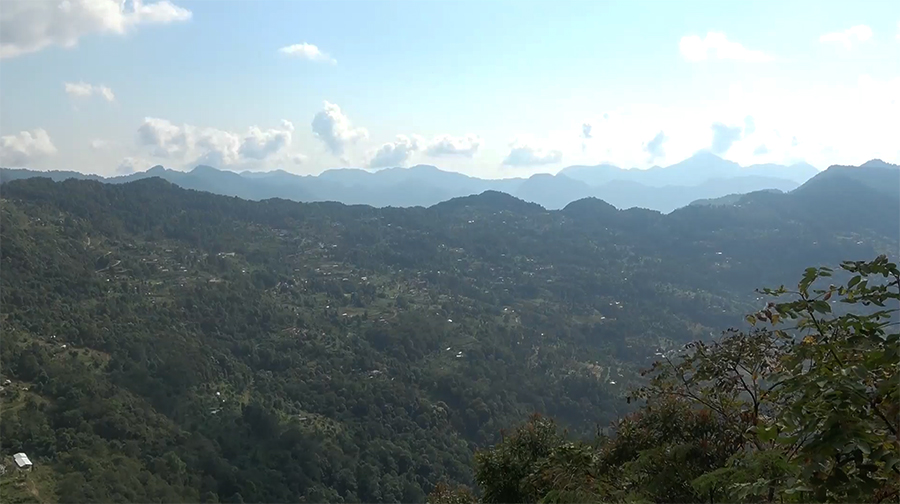
Due to the drying up of water sources and increasing settlements, the people of several gewogs in Tsirang face acute drinking water shortages. The ongoing mega drinking water supply project, which began in March this year is expected to resolve the issue. The two-year project will be completed by 2026.
 The drinking water supply will be drawn from Kuchikhola, which is over 17 kilometres from Rangthangling Gewog. Currently, the drinking water shortage is mainly prevalent in Barshong, Mendrelgang, Patshaling, Rangthangling, Tsholingkhar, and Kilkhorthang gewogs.
The drinking water supply will be drawn from Kuchikhola, which is over 17 kilometres from Rangthangling Gewog. Currently, the drinking water shortage is mainly prevalent in Barshong, Mendrelgang, Patshaling, Rangthangling, Tsholingkhar, and Kilkhorthang gewogs.
 Construction of reservoir tanks, laying of mainline pipes and distribution lines to all six gewogs are complete so far. According to the Tsirang District Administration, this constitutes over 60 per cent of the work.
Construction of reservoir tanks, laying of mainline pipes and distribution lines to all six gewogs are complete so far. According to the Tsirang District Administration, this constitutes over 60 per cent of the work.
 However, during the site inspection by the district office and UNDP, it was reported that over 75 per cent of the work is complete and it was also assured that the project will be finished ahead of its deadline.
However, during the site inspection by the district office and UNDP, it was reported that over 75 per cent of the work is complete and it was also assured that the project will be finished ahead of its deadline.
Once complete, the new drinking water supply is expected to eliminate the hassle of fetching water and storing it. People are hoping for an uninterrupted supply making their lives more convenient.
“Initially, Rati Khola provided sufficient water for our needs, and later we even got a water supply from Paw Khola. Today, these sources are no longer adequate for the growing number of settlements in the Chiwog over the years,” said Tobgay, a resident of Mendrelgang Gewog.
Chakra Bdr. Monger, a resident of Barshong Gewog said, “Currently, we have adequate drinking water supply, but after a month or two, the source will begin to dry up. The existing source is not sufficient for even three households. We can manage to collect only one or two jerry cans, and that is only if we fetch them early in the morning. The new drinking water supply will be of huge benefit to us.”
 “The existing drinking water supply was designed for around 25 households. However, the number of settlements in the Chiwog has increased. Some people inherited while others bought lands here. Some residents are unable to construct their houses due to the lack of adequate water,” said Krishna Lal Dhakal, Drubchhugang Tshogpa, Tsholingkhar Gewog.
“The existing drinking water supply was designed for around 25 households. However, the number of settlements in the Chiwog has increased. Some people inherited while others bought lands here. Some residents are unable to construct their houses due to the lack of adequate water,” said Krishna Lal Dhakal, Drubchhugang Tshogpa, Tsholingkhar Gewog.
“During the dry season, the existing drinking water supply decreases significantly. We have been relying on nearby water sources, but they are insufficient even for our livestock. The new drinking water supply from Khuchi will be a tremendous help for us,” said Deoki Maya Monger, a resident of Rangthangling Gewog.
The Global Environment Facility through the United Nations Development Programme is funding the project.
Pema Tshewang,Tsirang
Edited by Sangay Chezom








